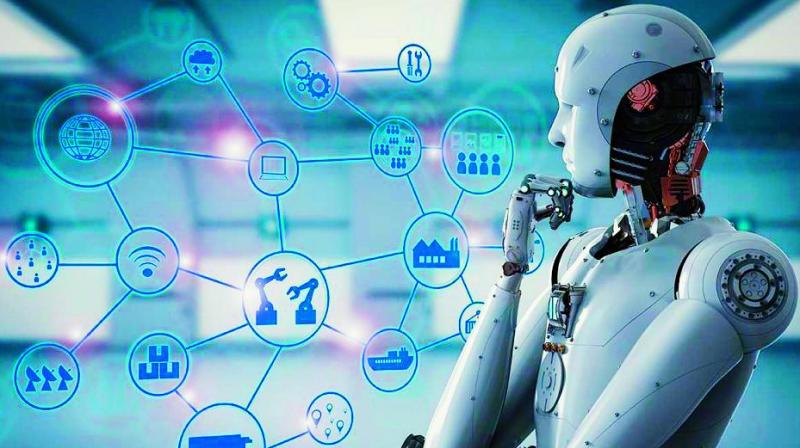Eternal student: Tech brings people back to learning
We stand today in the midst of one of the greatest revolutions in mankind’s history: The Information Age.

The greatest enemy of knowledge is the illusion of knowledge. We are what we repeatedly do. The will to win, the desire to succeed, the urge to reach your full potential... these are the keys that will unlock the door to excellence.
We stand today in the midst of one of the greatest revolutions in mankind’s history: The Information Age. The internet, in particular, has ushered in a new era of unprecedented information exchange.
It’s changing the education system, too. Technology is playing an increasingly prominent role, allowing for new approaches like inverted classrooms, Massive Open Online Courses and ‘mobile learning’. Technology will bring about a radical transformation in schools and colleges.
The ‘inverted’ or ‘flipped’ classroom usually refers to a different way of thinking about teaching and learning. In a traditional pedagogical model, a faculty member is a “sage on the stage,” while this is opening up towards a more interactive, collaborative setting.
The revolution isn’t just about systems of education. The act of learning has been thrown open, with people taking this pursuit of knowledge into their own hands. The trend is now about a new breed of learning technology. For instance, over 100 million people all over the world are learning languages online today. Other offerings, from computer programming to brain training, are mushrooming everywhere. Learners are deciding to learn of their own accord, for personal satisfaction.
Multimedia delivery of content is rapidly emerging as a preferred mechanism for teaching and learning. It provides the individual user with multisensory delivery, promotes self-expression and active learning.
The Semantic Web- web 3.0
The World Wide Web was invented by Sir Tim Berners-Lee in 1989.
The primary areas in which Semantic Web technology will impact education are: Knowledge construction, Personalized learning, course organization, resource management, design, and teaching.
The Semantic Web is a collaborative movement led by the World Wide Web Consortium that promotes common formats for data. It is a giant library housed on the internet with zillions of bytes of information. The best lectures in the world are available online, for free. It’s better than any university.
Can technology replace human intelligence?
Simply put, creation cannot replace the creator. We adapt and evolve. Each of these innovations have made us more productive. Technology as of now has no emotional intelligence. Our nimbleness to react instantly in very creative ways is unmatched by any computer.
Students will be learning otside, armed with different devices, listening to the teacher of their choice, or watching a video of a Nobel Laureate. The way knowledge is passed on will undergo a significant shift towards online platforms. Students will learn different topics at different times in different places.
Teachers will be able to identify slow learners and give them tasks to overcome the difficulties. Blended learning, flipped classrooms and Bring Your Own Device form important terminology within this change.
No physical campuses
Learning tools facilitate opportunities for remote, self-paced learning. Classrooms will not be brick-and-mortar anymore! There will probably be no campuses as we know them today. Learning won’t be limited to a physical school.
Traveling classrooms and the real-world environment will be the new campus. Students are no longer dependent upon a certain place and are able to study wherever they are.
Teacher or mentor?
There is some question today on what educational methodology is best for learning—teaching or mentoring? The answer is: It depends, because everyone learns differently. Teaching is about knowledge, mentoring about experience. Teaching focuses on the how and mentoring focuses on the why.
The educator has to be a teacher for some and a mentor to others. Some need both. Teachers are valuable resources in education, and high-quality performance in teaching is an essential ingredient of educational improvement or reform.
Mentoring can play a critical role in continually improving the professional knowledge and skills that teachers need to instruct and prepare students for the next century. However, to be effective, mentoring programs must be developed that take into account the complexity, process and function of the programs.
Online education
Today's student is no longer defined by age, but rather by the need, or desire, for learning to achieve personal goals. Today’s students come to class armed with smart phones, laptops and iPods.
Online degree programs and distance learning have gained a firm foothold in universities. What was once a niche channel for of educational content has become main stream, creating wider access to education, new markets for content and expanded revenue opportunities for academic institutions.
The specialization, customization and convenience that distance education affords have found an eager audience among students, working professionals and employers. These changes will have a significant ripple effect on higher education.
Education is the most powerful tool at our disposal. The Indian education system has to become research and innovation oriented, where students are not overburdened by syllabus, exams, marks and projects, rather they have the liberty to pursue their interest to explore and experiment their potential to its best in finding something new, which can bring about a positive changes in people’s lives.
— Dr N. Prabhudev is a Former Director, Sri Jayadeva Institute of Cardiology

